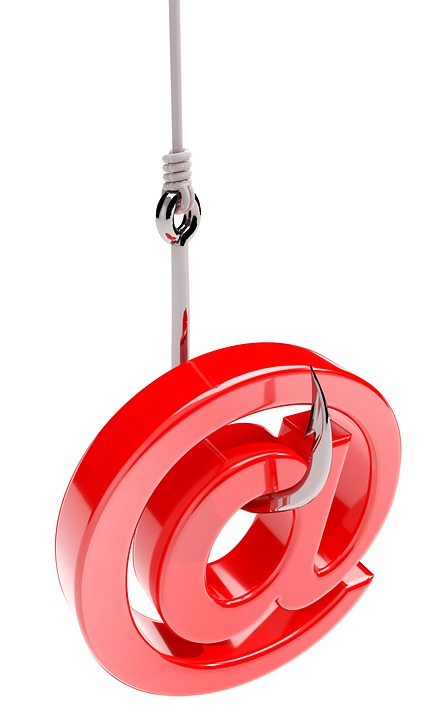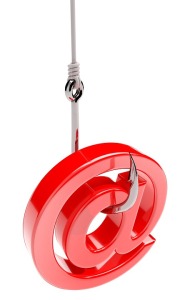Protecting our belongings and our security is of paramount importance to us, no matter where we are and no matter what we are doing.
This philosophy and thinking also extend to `online.`
As a generation and a population, we carry out a lot of tasks over the internet — a lot. From online banking to pay for goods and services, to even receiving money into online accounts, and registering with companies to receive the latest deals, etc. we actually give quite a lot of our personal information away.
It is this personal information, our online `belongings`, which we need to protect.
Emails sent out to get us.
Ok, so maybe a little strong but how many times have we been warned about those pesky phishing emails? The ones that have been created by criminals and sent out to the masses for them to try to capture the few vulnerable people who will respond, entering their personal information, things like bank details and usernames, passwords, etc.
It is often the norm that the link that is contained in the nuisance email once clicked allows these hackers to access information, place viruses on your computer and much more.
However, if a link within an email is genuine, you should be able to access the same information through the company’s web pages and be able to sign in from their site instead.
This might seem like a long process as the email may seem completely genuine but doing it this way means you’re not putting yourself and your belongings at any further risk.
What a phishing scam could look like
It’s unfortunate to say, but phishing scams have become much more sophisticated and “real looking” in recent years. They can often go out of their way to use the systems and software available, and that you too use, to gain trust and lure you in.
For example, would you think it safe if you got a request from someone you know who is sharing a Google doc with you?
Your first instinct is to say yes; however, this is precisely the type of scam that causes people to be caught off-guard.
How?
Because unless you know what signs to look out for, the phishing scam taking place can look very genuine.
For example, linked to the google doc sharing request scam we’ve mentioned above, the email you received seems to be friendly and looks to be from Google itself and, in fact, it even directs you to the “Choose an Account” screen.
However, when we come to the next step of the process, small cracks start to show in the legitimacy of it all.
For example, you were asked to “click here to allow Google to manage your contacts and read your emails.” Hopefully just at this question, warning lights are going off; however, all might seem OK as still at this stage you even didn’t have to enter your password…. (those warning lights should most definitely be flashing red now!)
What happens is that if you click in the link and authorise the app, whoever is running the scam now gets instant access to all of your emails and contacts, ultimately all of your data and information.
They can even send out emails to your contacts now, rerunning this same scam, building up their list and repertoire of victims.
For all we’ve used this particular example as a mini case study, it is a real case study, which unfortunately did work, and many people fell foul to the scam.
Phishers are clever, and they are out there always looking at alternative avenues to gain access to personal information.
How can you protect yourself better?
With SonicWall Protection
Your best and the first line of defence is to look to block phishing emails before they even get to you.
SonicWall email security is very quick and easy to install and is an excellent place to start to help deal with the dreaded phishing email. It is taking security further than your average anti-virus software packages by taking the time (but no time of yours) to analyse each message that is sent to your system using hosted email security.
It’s not just phishing that you will be protected from either, things like ransomware, spam and viruses are also covered through one security system – SonicWall.
Benefits of SonicWall email security:
- You don’t have to be concerned about employees or anyone, accidentally clicking on a link they shouldn’t with an email; they shouldn’t have opened and exposing your whole system
- At around £200 (VAT included), you only need to buy one licence per server making the entire system very cost effective.
- The software will run automatic updates, so you will always receive the most up-to-date cover.
- The system integrates seamlessly into any existing systems, providing you with real-time protection in an instant.
With the number of businesses hitting the headlines due to security breaches when it comes to phishing, can you afford to sit back and do nothing?
A small investment to protect your business is all it takes to stop cybercriminals from creating reputation risk and liability issues for you.
Contact SonicWall sales now to find out what the right solution is for you and your business.
Good Practice tips
Some good practice tips and things to remember when it comes to protecting yourself from a cyber-attack:
- Do not click on a link in an email unless you are 100% sure you know where that link will take you.
- Check you the company name or the person who is sending the email. It might look genuine, but usually, there is always something which isn’t quite right, make sure to check it out.
- If you do receive an email which states to be from Google or Microsoft for example, and they are asking you to confirm your details, ignore the link and go via the channels on their website instead, if it is genuine it will work in the same way.
- If you need to download anything, again do so directly from the company’s website
- Finally, where you can, make sure to enable 2-factor authentication.
Ultimately, you need to think about whether or not it makes sense for the company in question to have sent you the email and have they sent emails similar to this before, so makes sense to receive it again.
If you’re not sure on something, then trust your instinct and in cases where you can, contact the company purporting to email you directly to ask them outright.
If you’re looking for a hosted email security system you can trust, look no further than SonicWall.

